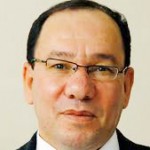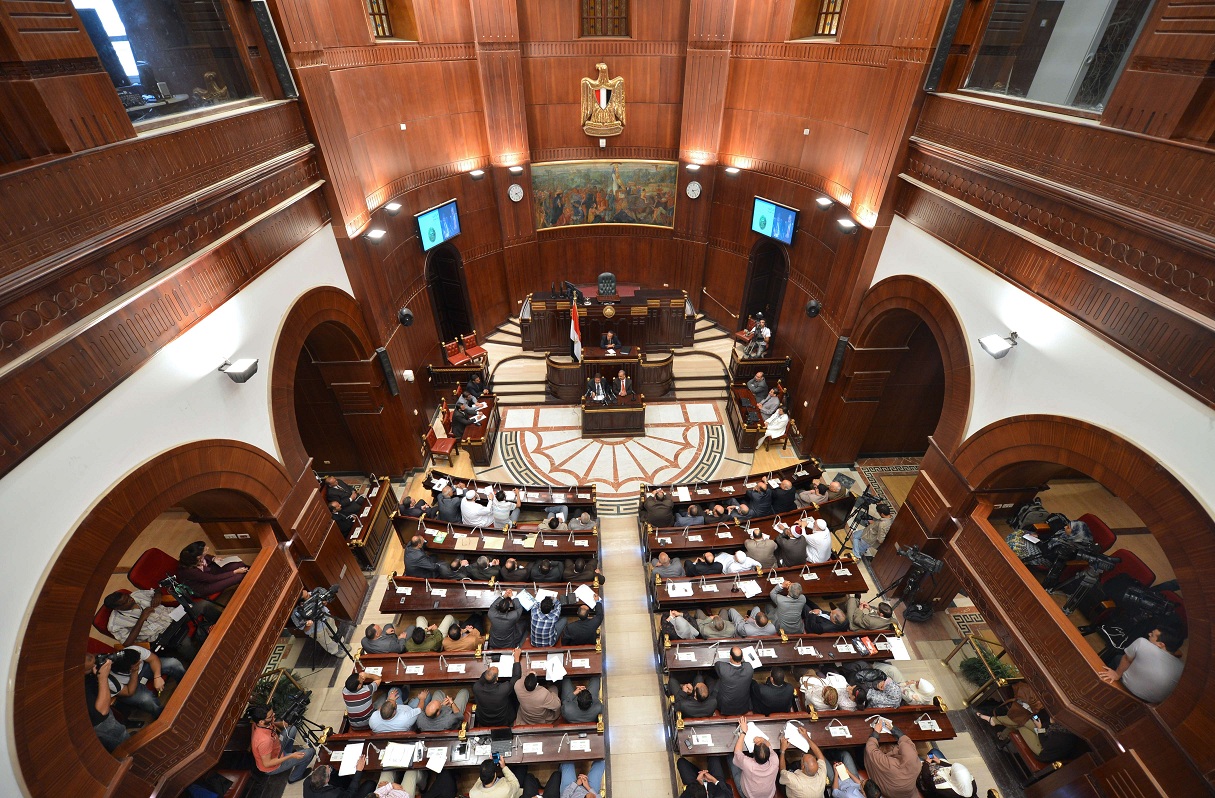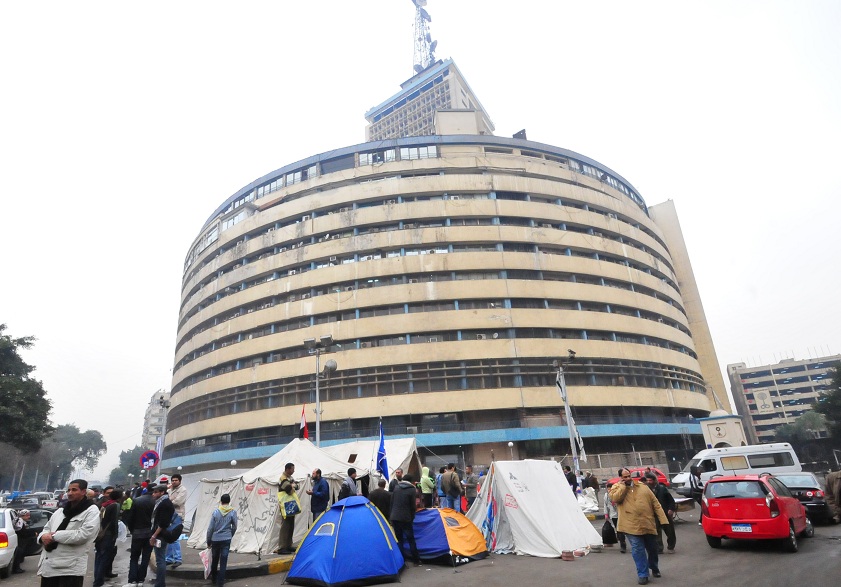The expanding phenomenon of sexual harassment attracts the attention a one columnist this week, who cites the large number of police reports against harassers between 10 and 15 years old. Other op-eds explored the rigid religious speech of the imam who preached to Morsy in Assiut on Friday.
Back to Al-Ghannouchi of Tunisia and the brothers of Egypt
Saad El-Din Ibrahim
Al Masry Al-Youm newspaper
Ibrahim recounts how western media was turning its major attention to political Islamist participants after he participated in an event organised by the Arab Union Studies Centre of Beirut and the Swedish Institute of Alexandria, in Hammamet resort, Tunisia, between 15 and 17 October.
Al-Ghannouchi’s opening speech focused on the relation between Islam and secularism, stating the existence of a variety of Islamisms versus a variety of secularisms. He pointed to a homogeneous meeting point between one type of Islamism and one type of secularism, citing Turkey, Malaysia and Tunisia as examples. When questioned by Ibrahim on whether Islamists use religion to their own favour, in the same way the medieval Churches of Europe did; he did not object.
In fact, Al-Ghannouchi stated that Salafi currents in Tunisia are accusing Ennahda Party of failing to implement Shari’a and resorted to its implementation by themselves on fellow Tunisian citizens in the streets. When Ibrahim reiterated that the policing of Ennahda government of the Salafi violence copied Ben Ali’s methods, Al-Ghannouchi stated that this had been the logic of the state and the authority in every time and place. Ibrahim concludes that only democracy and the rule of law are the solution to everything.
Militias enjoying Eid
Mohamed Salmawi
Al-Masry Al-Youm newspaper
After being subjected to a continuous flow of insults and verbal abuse for his posts and articles on the internet, usually ended with the expression “and by the way I am not a Muslim Brother”, Salmawi noticed that during the Eid holidays, no insults were posted at all against his expressed opinion. He was informed by a close friend that the electronic militias of the Muslim Brotherhood, which are hired in an orchestrated effort to attack any dissident voice on the web, were enjoying their Eid holiday.
This conclusion was further reinforced when the traditional insults resumed right after the end of the Eid break. Furthermore, Salmawi cites one of his prominent colleagues in Al-Ahram newspaper, confirming that an apartment overlooking Tahrir Square has been dedicated to the Brotherhood’s electronic militias, who organise themselves into work shifts, and receive daily instructions on who to attack and what points to focus on.
Salmawi was specifically targeted by what he considers as the Brotherhood’s electronic militias for daring to criticise political Islamists of the Constituent Assembly for their deliberate attempts to entangle personal freedoms in the new constitution. He questions how verbal abuse could be the means employed by those in charge of implementing democracy at this current stage.
When they ask about sexual harassment
Fahmy Howeidi
Al-Shorouk newspaper
The minimal attention to parenting in Egypt could be one of the main root causes of the phenomenon of sexual harassment expanding in the country, according to Howeidi. The columnist considers how the social phenomenon stemmed. Recalling that the average number of police reports on sexual harassment reached more than 700 a day during the feast last week, Howeidi believes that television plays a primary role in stimulating the sexual desire within the Egyptian youth. The most interesting point raised by the writer is shown as he states that the age of harassers now includes 10 to 15 year olds.
The reflection indicates the destructive potential of the internet and other media channels through which many Egyptian children gain their knowledge from. Although Howeidi notes there is a large portion of the society still bonded to mosques and churches, the Egyptian community is a representative of all societal diversities.
If one is to point fingers at television and the messages delivered, those working in the media field should be the persons to blame for what content is produced. According to the columnist, it is indeed the responsibility of media professionals, who fail to direct the channels to generate constructive and educational products, that sexual harassment is escalating everyday.
They deceived you saying: Islam is indeed coming to Egypt
Wael Qandil
Al-Shorouk newspaper
Recalling the Friday speech of the imam in Assiut to the congregation which President Morsy was attending, Qandil intensifies his criticism of religious speech that stresses that Islam is indeed coming to Egypt. As if the country has just been discovered on world maps, the writer chides the imam for using a politically directed religious speech ahead of the public referendum on the constitution. It really sounds eccentric that an imam, belonging to the Muslim Brotherhood, stands in front of Morsy implying that the country is not Islamic.
When the Muslim Brotherhood dominates the parliament and most of the country’s institutions, the writer asks how such a speech could claim that Egypt lacks any Islamic inclinations? Expressing his astonishment, Qandil asks isn’t it evidence enough of Islam’s presence in Egypt that Youm7 newspaper would publish a story citing priest Moussa, who represents the Coptic church’s youth, affirming that Islam has freed Copts from prejudice in Egypt? What about the big research centre of Islamic studies in Abbaseya? Having the main debate in the speech focusing on Egypt’s identity and religion pushes Qandil to think that Egypt is a newly born country in quest for a proper identity.
The mission of opposing the president
Ibrahim Eissa
Al-Tahrir newspaper
In one of his stronger columns, Eissa argues that there is no such concept of objectivity in modern press. Throughout the history of the Egyptian media, the writer recalls how newspapers, with different political inclinations, have contributed to the establishment of political parties. Whether liberal, leftist or conservative, Eissa is convinced that every newspaper should represent its own belief. In the dark 30 years of Mubarak, journalists used to practice their hypocrisy with false claims on objectivity and transparency.
Many couldn’t dare to oppose the president hiding their intentions behind concepts of fairness and clarity. In his view, Eissa believes that the same method is notable being used today by journalists who are devoted to President Morsy. As a president of the republic, Morsy should only be concerned with ‘insults,’ other than that Eissa notes that criticism and disapproval to his decrees or speeches should be permissible and acceptable for journalists.
Before the 23 July revolution, Egyptian newspapers played a significant role in the political sphere. Many have been functioning as an effective tool in political struggle. It was only when Mubarak became the president that the grounds of media in Egypt has altered to be a plain space for hypocrisy and sugar-coated statements that cannot carry out the mission of opposing the president.








